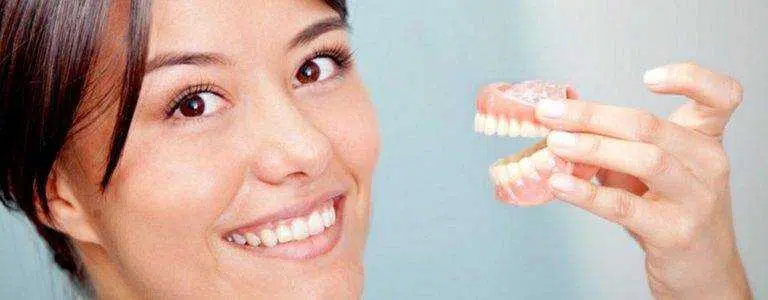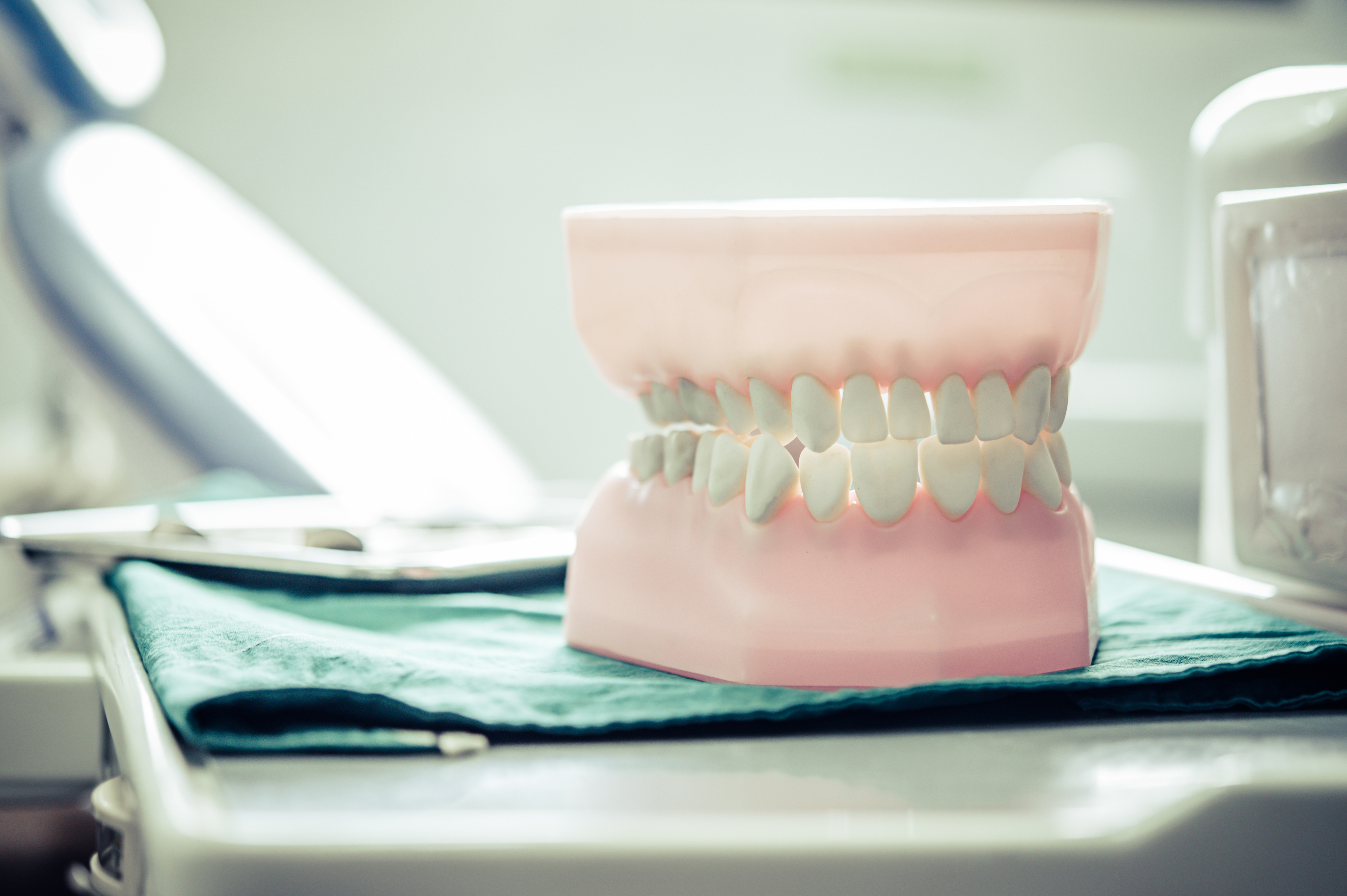Introduction
Dentures are a popular solution for individuals who have lost one or more of their natural teeth. Whether it’s due to injury, illness or simply aging, dentures can help improve your ability to eat and speak properly, as well as give you a more youthful appearance. However, as with any dental appliance, dentures can come with their own set of problems. In this blog post, we will take a closer look at some of the most common denture-related issues and provide tips on how to address them.
Denture-related issues can range from ill-fitting dentures that cause discomfort to broken or cracked plates that make it difficult to eat or speak. These issues can not only affect your quality of life, but also lead to further oral health problems if left untreated.
It’s important to note that even if you have worn dentures for a long time, it does not mean you have to live with these issues. With the help of a denturist or dentist, you can find solutions to improve the fit and function of your dentures. Whether it’s through adjustments, relines, or even getting new dentures, the goal is to provide you with a comfortable and functional set of dentures that will improve your quality of life.
In this blog post, we will cover the most common denture-related issues, such as ill-fitting dentures, broken or cracked dentures, stomatitis, and denture-related pain. We will also provide tips on how to address these issues and improve your comfort and quality of life. Keep reading to learn more.
A. Brief Overview of The Topic: Common Denture-Related Issues
Denture-related issues can range from ill-fitting dentures that cause discomfort to broken or cracked plates that make it difficult to eat or speak. Some of the most common denture-related issues include:
B. The Importance of Addressing These Issues For Comfort and Quality of Life
Denture-related issues can affect your quality of life in many ways. Ill-fitting dentures can cause discomfort and pain, making it difficult to eat and speak properly. Broken or cracked dentures can also affect your ability to eat and speak, as well as be unsightly. Stomatitis can lead to further oral health problems if left untreated.
Additionally, denture-related pain can affect your overall quality of life, making it difficult to enjoy the activities you once did. If left untreated, denture-related issues can lead to further oral health problems such as infection, poor nutrition and self-esteem issues.
It’s important to address these issues as soon as possible, in order to improve your comfort and quality of life. With the help of a denturist or dentist, you can find solutions to improve the fit and function of your dentures. Whether it’s through adjustments, relines, or even getting new dentures, the goal is to provide you with a comfortable and functional set of dentures that will improve your quality of life.
Ill-fitting Dentures
A. Definition and causes of ill-fitting dentures
Ill-fitting dentures are dentures that don’t fit properly on the gums and jaw, causing discomfort and pain. There are several causes for ill-fitting dentures, including:
B. Symptoms and effects on daily life
The symptoms of ill-fitting dentures can include:
These symptoms can affect your daily life in several ways, making it difficult to eat and speak properly, leading to poor nutrition and self-esteem issues.
C. Solutions for ill-fitting dentures
Fortunately, there are solutions available for ill-fitting dentures that can improve your comfort and quality of life. These solutions include:
It’s important to seek professional help for ill-fitting dentures, a dentist or denturist can help you determine the best solution for you. With the right solution, you can improve your comfort and quality of life.
Broken or Cracked Dentures
A. Definition and causes of broken or cracked dentures
Broken or cracked dentures are dentures that have sustained physical damage, rendering them unusable or uncomfortable. The causes of broken or cracked dentures can include:
B. Symptoms and effects on daily life
The symptoms of broken or cracked dentures can include:
These symptoms can affect your daily life in several ways, making it difficult to eat and speak properly, leading to poor nutrition and self-esteem issues.
C. Solutions for broken or cracked dentures
Fortunately, there are solutions available for broken or cracked dentures that can improve your comfort and quality of life. These solutions include:
It’s important to seek professional help for broken or cracked dentures, a dentist or denturist can help you determine the best solution for you. With the right solution, you can improve your comfort and quality of life.
Stomatitis (Inflammation of the mouth)
A. Definition and causes of stomatitis
Stomatitis, also known as oral mucositis, is an inflammation of the oral mucosa (the lining of the mouth). There are numerous potential causes, such as:
B. Symptoms and effects on daily life
The symptoms of stomatitis can include:
These symptoms can affect your daily life in several ways, making it difficult to eat and speak properly, leading to poor nutrition and self-esteem issues.
C. Solutions for stomatitis
Fortunately, there are solutions available for stomatitis that can improve your comfort and quality of life. These solutions include:
It’s important to seek professional help for stomatitis, a dentist or denturist can help you determine the best solution for you. With the right solution, you can improve your comfort and quality of life.
Denture-Related Pain
A. Definition and causes of denture-related pain
Denture-related pain is discomfort or pain caused by ill-fitting or poorly made dentures. Some of the causes of denture-related pain include:
Ill-fitting dentures: Dentures that do not fit properly can cause pressure points and friction on the gums and jaw, leading to pain.
Worn or damaged dentures: Dentures that have worn down over time or have sustained damage can cause pain when worn.
Poorly made dentures: Dentures that are not made to the correct specifications can cause pain and discomfort.
B. Symptoms and effects on daily life
The symptoms of denture-related pain can include:
These symptoms can affect your daily life in several ways, making it difficult to eat and speak properly, leading to poor nutrition and self-esteem issues.
C. Solutions for denture-related pain
Fortunately, there are solutions available for denture-related pain that can improve your comfort and quality of life. These solutions include:
It’s important to seek professional help for denture-related pain, a dentist or denturist can help you determine the best solution for you. With the right solution, you can improve your comfort and quality of life.
Conclusion:
A. An overview of the blog post’s important points
In this blog post, we discussed several common denture-related issues, including ill-fitting dentures, broken or cracked dentures, stomatitis and denture-related pain. We also provided tips on how to address these issues and improve your comfort and quality of life.
B. Reminder of the importance of addressing denture-related issues for comfort and quality of life
It’s important to remember that denture-related issues can affect your quality of life in many ways. Ill-fitting dentures can cause discomfort and pain, making it difficult to eat and speak properly. Broken or cracked dentures can also affect your ability to eat and speak, as well as be unsightly. Stomatitis can lead to further oral health problems if left untreated. Denture-related pain can affect your overall quality of life, making it difficult to enjoy the activities you once did.
C. Encouragement to seek professional help for denture-related issues
If you’re experiencing any denture-related issues, it’s important to seek professional help. A dentist or denturist can help you determine the best solution for you, whether it’s through adjustments, relines or even getting new dentures. With the right solution, you can improve your comfort and quality of life. Don’t let denture-related issues affect your daily life any longer, seek professional help today.




